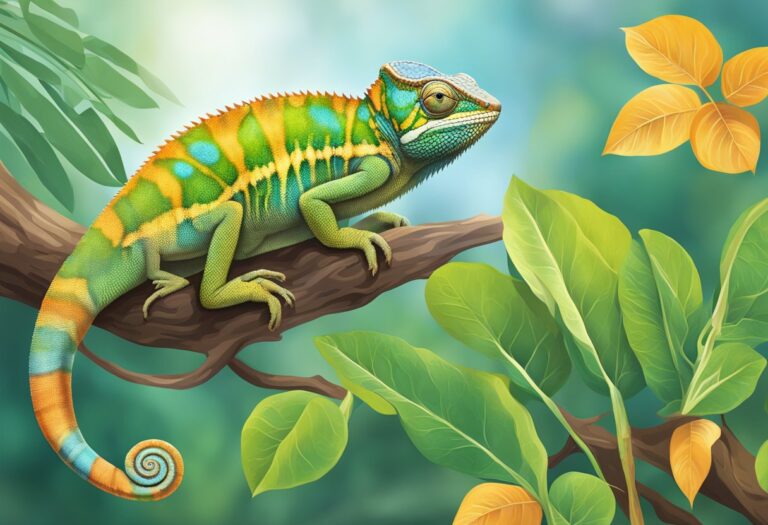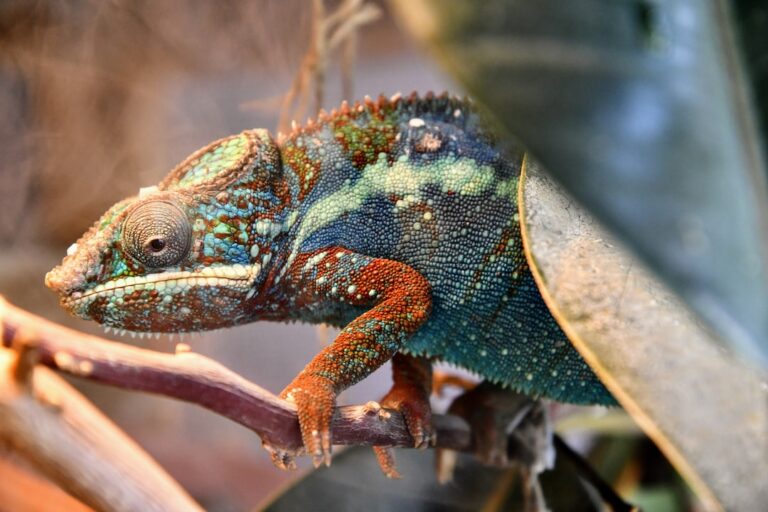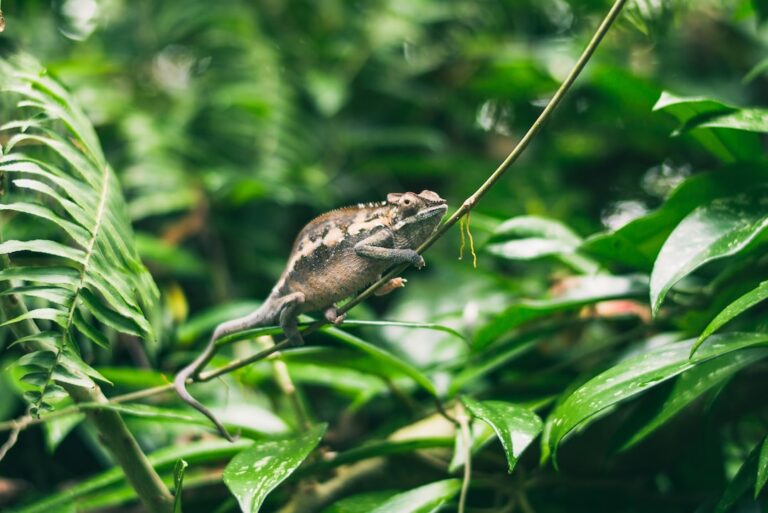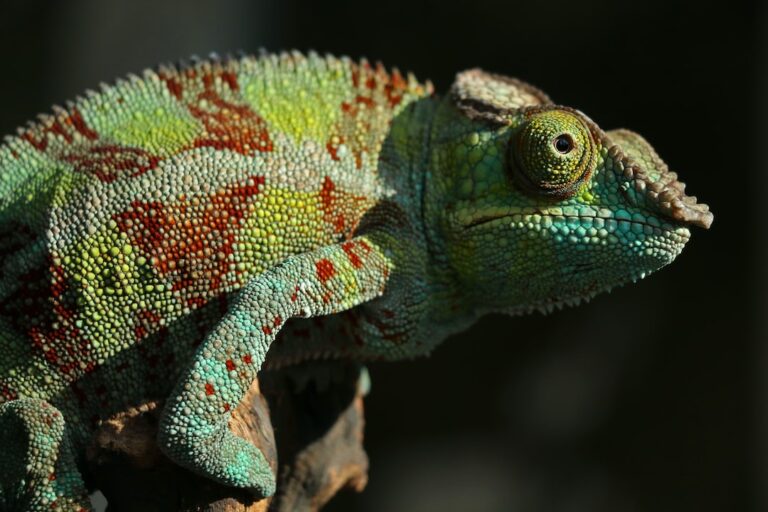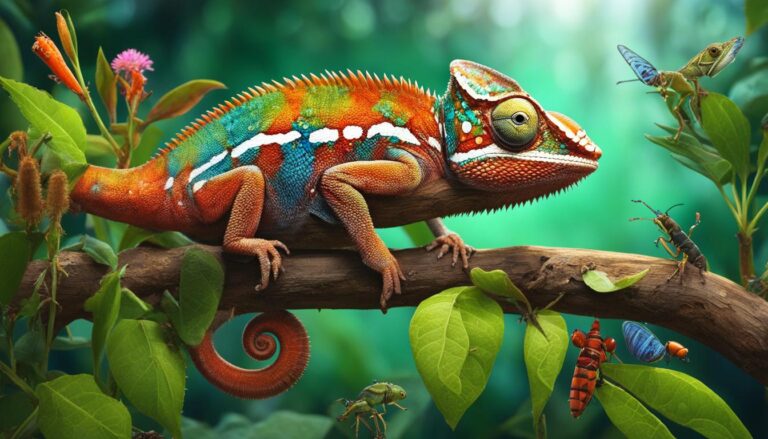Can Chameleons Drink Bottled Water?
Chameleons are fascinating creatures known for their ability to change color and blend into their surroundings. They are native to the rainforests of Africa, Madagascar, and other tropical regions. Chameleons have unique characteristics that make them stand out among other reptiles. One of these characteristics is their water needs.
Water is essential for all living organisms, and chameleons are no exception. It plays a crucial role in their overall health and well-being. Chameleons need water for hydration, maintaining proper bodily functions, and regulating their body temperature.
Table of Contents
The Importance of Proper Hydration for Chameleons
Proper hydration is vital for chameleons to thrive. Dehydration can have severe negative effects on their health. When chameleons do not have access to enough water, they can become weak, lethargic, and even die.
In addition to maintaining hydration, water also helps chameleons with shedding their skin. Adequate hydration ensures that the skin comes off easily and without any complications. Without enough water, chameleons may experience difficulties shedding, leading to skin infections or other health issues.
Proper hydration also plays a role in a chameleon’s reproductive health. Female chameleons need to be well-hydrated in order to produce healthy eggs. Without enough water, the eggs may become dehydrated or fail to develop properly.
Understanding the Different Types of Water for Chameleons
There are several different types of water available for chameleons, each with its own benefits and drawbacks.
Tap water is the most readily available source of water for most people. However, it may not be suitable for chameleons due to the presence of chemicals such as chlorine and fluoride. These chemicals can be harmful to chameleons if ingested in large quantities.
Filtered water is another option for chameleons. It removes impurities and chemicals from tap water, making it safer for consumption. However, it is important to ensure that the filtration system used is appropriate for removing harmful substances.
Bottled water is a popular choice for chameleon owners. It is convenient and often comes in different varieties, such as spring water or purified water. However, not all bottled water is created equal, and some may contain additives or minerals that are not suitable for chameleons.
Can Chameleons Drink Tap Water?
Tap water can be risky for chameleons due to the presence of chemicals such as chlorine and fluoride. These chemicals are added to tap water to kill bacteria and make it safe for human consumption. However, they can be harmful to chameleons if ingested in large quantities.
To make tap water safe for chameleons, it is recommended to let it sit out for at least 24 hours before using it. This allows the chlorine to evaporate and reduces the risk of harm to the chameleon. Alternatively, using a dechlorinator or water conditioner can also remove harmful chemicals from tap water.
Pros and Cons of Bottled Water for Chameleons
Bottled water is a popular choice among chameleon owners due to its convenience and availability. However, there are pros and cons to consider when using bottled water for chameleons.
One of the benefits of bottled water is that it is often purified or sourced from natural springs, making it free from harmful chemicals. It also comes in different varieties, allowing owners to choose the best option for their chameleon’s needs.
However, there are also drawbacks to using bottled water. It can be expensive, especially if used as the sole source of hydration for a chameleon. Additionally, not all bottled water is created equal, and some may contain additives or minerals that are not suitable for chameleons.
Is Bottled Water Safe for Chameleons to Drink?
In general, bottled water is safe for chameleons to drink. However, it is important to choose the right type of bottled water to ensure the health and well-being of your chameleon.
Spring water and purified water are generally safe options for chameleons. These types of bottled water are free from harmful chemicals and additives. However, it is still important to check the label and ensure that there are no added minerals or substances that could be harmful to your chameleon.
It is also important to note that some types of bottled water, such as flavored or carbonated water, should be avoided. These types of water may contain additives or sugars that can be harmful to chameleons.
How to Choose the Right Bottled Water for Your Chameleon
When choosing bottled water for your chameleon, there are a few things to consider. First, look for spring water or purified water that does not contain any added minerals or substances. These types of water are generally safe for chameleons.
It is also important to check the pH level of the water. Chameleons prefer slightly acidic water with a pH level between 6.5 and 7.5. Avoid water with a pH level that is too high or too low, as it can cause digestive issues for your chameleon.
Lastly, consider the size of the bottle and how long it will last. Chameleons require a constant supply of fresh water, so it is important to choose a bottle size that will last at least a few days before needing to be replaced.
Tips for Encouraging Your Chameleon to Drink Water
Chameleons can be picky drinkers, so it is important to provide them with options and encourage them to drink water. Here are a few tips to help encourage your chameleon to drink:
1. Provide a variety of water sources: Offer both a water dish and a misting system in your chameleon’s enclosure. Some chameleons prefer to drink from a dish, while others prefer to lick water droplets off leaves.
2. Mist the enclosure regularly: Chameleons often drink water droplets that collect on leaves after misting. Misting the enclosure several times a day can help ensure that your chameleon has access to fresh water.
3. Use a dripper system: Some chameleons prefer to drink from moving water sources. A dripper system can simulate rain and provide a constant supply of fresh water for your chameleon.
4. Monitor your chameleon’s water intake: Keep an eye on how much water your chameleon is drinking. If you notice a decrease in water intake, it may be a sign of dehydration or an underlying health issue.
Common Mistakes to Avoid When Providing Water for Chameleons
When providing water for chameleons, there are some common mistakes that owners should avoid:
1. Using tap water without treating it: As mentioned earlier, tap water can contain harmful chemicals that can be harmful to chameleons. Always treat tap water before giving it to your chameleon.
2. Using the wrong type of bottled water: Not all bottled water is suitable for chameleons. Avoid flavored or carbonated water, as they may contain additives or sugars that can be harmful.
3. Neglecting to monitor water intake: It is important to keep an eye on how much water your chameleon is drinking. If you notice a decrease in water intake, it may be a sign of dehydration or an underlying health issue.
4. Not providing enough hydration options: Chameleons have different preferences when it comes to drinking water. Provide a variety of options, such as a water dish, misting system, and dripper system, to ensure that your chameleon has access to fresh water.
Ensuring Your Chameleon’s Health and Well-being through Proper Hydration
Proper hydration is essential for the health and well-being of chameleons. Water plays a crucial role in their overall health, from maintaining hydration to aiding in shedding and reproductive health.
When providing water for chameleons, it is important to choose the right type of water and provide a variety of options. Tap water can be made safe for chameleons by letting it sit out or using a dechlorinator. Bottled water is generally safe, but it is important to choose the right type and check the label for any additives or minerals.
By following these guidelines and avoiding common mistakes, you can ensure that your chameleon stays hydrated and healthy. Remember to monitor your chameleon’s water intake and provide fresh water regularly to promote optimal health and well-being.
If you’re curious about the drinking habits of chameleons, you might also be interested in learning why chameleons rock back and forth. This intriguing behavior is explored in detail in the article “Why Do Chameleons Rock Back and Forth?” on Reptile Friend. Discover the reasons behind this unique movement and gain a deeper understanding of these fascinating creatures.


